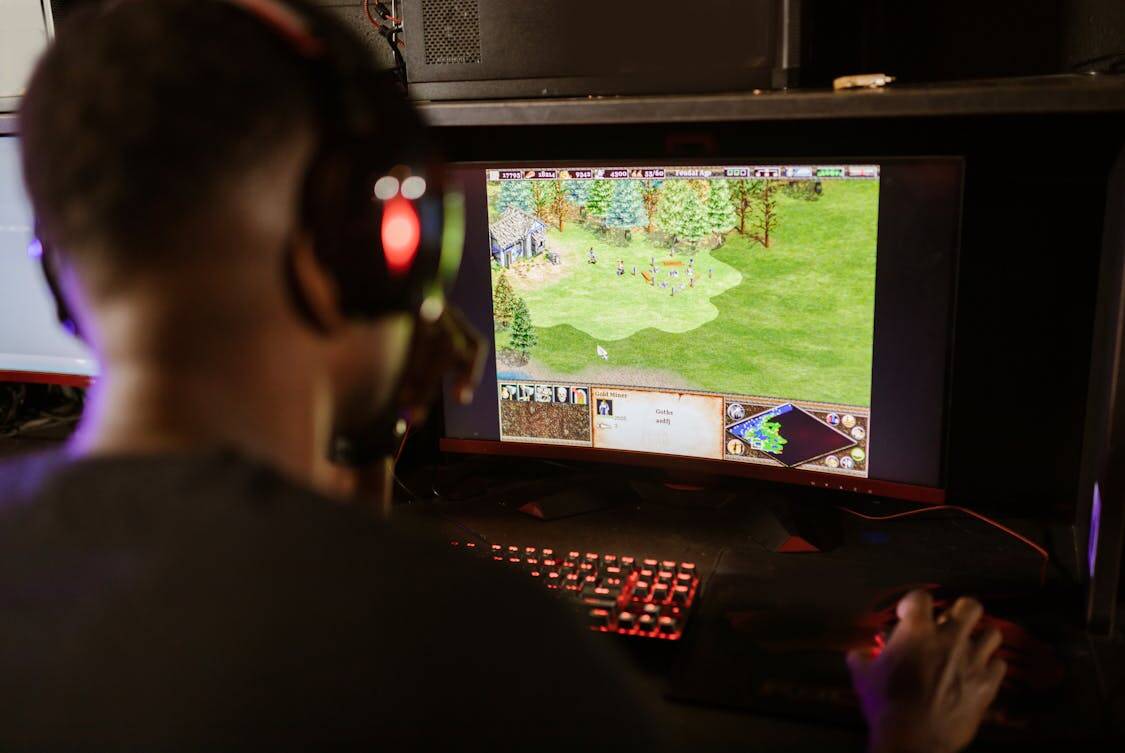The gaming industry has seen a seismic shift in recent years. With advancements in artificial intelligence, developers are no longer limited to creating static experiences.
Nowadays, games can adapt and respond to players in real-time, leading to a far more engaging and personalized journey.
The incorporation of AI into video games is a vast topic, but here, we’ll explore the various ways this technology enhances individual player experiences.
Personalized Content Creation
One of the most exciting applications of AI in gaming lies in content creation. AI algorithms can analyze player behavior, preferences, and even skill levels to generate tailored experiences.
Imagine a game that changes its narrative based on your decisions and actions. By analyzing your playstyle, AI systems can adjust story arcs, challenges, and character interactions, ensuring that every player has a unique adventure.
This dynamic storytelling approach encourages players to explore different paths and makes each session feel fresh. It’s not just about playing through the same levels; it’s about creating a narrative that feels like it’s unfolding just for you.
Dynamic Difficulty Adjustment
Imagine you’re cruising through a game, feeling like a pro, and suddenly hit a wall. Frustration sets in, and you may even quit the game altogether.
Enter AI-driven dynamic difficulty adjustment (DDA). This feature allows games to monitor your performance in real-time and adjust challenges accordingly.
If you’re breezing through levels, the AI can ramp up the difficulty by introducing tougher enemies or more complex puzzles. Conversely, if you’re struggling, it might ease off, making the game more approachable.
This responsive approach keeps players engaged and invested, ensuring that challenges remain stimulating without being punishing.
Enhanced NPC Interactions

Non-playable characters (NPCs) have traditionally followed rigid scripts, offering limited interactions. AI breathes life into these characters, enabling them to react more naturally to player actions.
Through machine learning, NPCs can learn from player behavior, developing unique personalities and responses.
For example, an NPC might remember previous interactions, offering personalized dialogue based on past encounters.
This level of dynamism fosters a richer game world where players feel their actions have genuine consequences. Imagine walking into a tavern and being warmly greeted by an NPC who recalls your last heroic deed!
Player Behavior Analysis
Understanding player behavior is key to improving gaming experiences. AI can sift through mountains of data to identify trends and preferences among various player demographics.
This analysis helps developers make informed decisions about game design, features, and future updates.
By studying how players interact with different elements, developers can fine-tune gameplay mechanics to align with player preferences.
This knowledge ensures that the game evolves in a manner that resonates with its audience, leading to higher satisfaction and retention rates.
Real-time Feedback and Adaptation
Imagine a world where your gaming experience is continuously refined as you play. AI provides real-time feedback, allowing for adjustments on the fly.
Whether it’s suggesting strategies or offering hints when you’re stuck, AI can be a player’s best friend.
By analyzing your performance, the system can identify areas where you may need assistance.
This feedback loop creates a supportive environment where players can learn and improve, enhancing their overall gaming experience.
Customizable Avatars and Characters
Another area where AI shines is in the customization of avatars and characters. Players can use AI-driven tools to create unique characters that reflect their style and preferences.
From physical appearance to personality traits, AI enables a level of personalization that was once unattainable.
Some games even allow players to tailor the backstory of their characters, influencing the game world and interactions they encounter.
This depth of customization fosters a deeper connection to the gaming experience, making players feel like true architects of their virtual identities.
Procedural Generation of Game Worlds
The concept of procedural generation is not new, but AI takes it to new heights. By leveraging algorithms, games can create expansive worlds filled with unique landscapes, quests, and adventures.
This means no two playthroughs are the same, as the AI generates varied environments for exploration.
This unpredictability keeps players engaged, as they never know what lies around the corner. It injects an element of surprise into the gameplay, ensuring that players remain curious and excited about their next adventure.
Social Interactions and AI Companions
AI isn’t just about enhancing single-player experiences; it also plays a vital role in multiplayer interactions. AI-driven companions or bots can fill gaps in player teams, ensuring a balanced gameplay experience.
They can adapt to various roles, whether as guardians or healers, based on the dynamics of the player group.
Incorporating AI-driven companions into the gameplay allows for more dynamic team dynamics, with in-game allies using AI adapting to your playstyle and enhancing multiplayer interactions.
Moreover, AI can analyze social interactions, suggesting potential teammates based on compatibility and playstyle.
This ensures players can connect with others who complement their gaming approach, fostering a more harmonious multiplayer environment.
Emotion Recognition and Adaptive Storytelling
Imagine a game capable of reading your emotions. Using AI-driven emotion recognition technology, games can adjust narratives based on your emotional state.
If you’re feeling frustrated, the game might introduce a lighter, more humorous subplot to alleviate tension. Conversely, if you’re deeply engaged, it might amplify the stakes in the story.
This level of emotional adaptability transforms the gaming experience into something highly personal.
It’s not just about completing quests; it’s about connecting with the story in a way that resonates with your feelings at that moment.
AI-Driven Community Engagement
Communities are the lifeblood of many gaming experiences. AI can help foster these communities by analyzing player interactions and feedback.
By understanding what players enjoy or dislike, developers can create events, challenges, and updates that resonate with the community.
Moreover, AI can facilitate matchmaking based on player preferences and behaviors, ensuring that players are paired with like-minded individuals.
This approach not only enhances individual experiences but also strengthens the community as a whole.
Accessibility Features Powered by AI
One of the standout applications of AI in gaming is enhancing accessibility. AI can analyze player behaviors to identify potential barriers faced by individuals with disabilities.
By implementing adaptive controls, voice recognition, or visual enhancements, games become inclusive spaces where everyone can enjoy the experience.
This level of consideration ensures that gaming is a welcoming environment for all, promoting diversity within the player base. The rise of AI-driven accessibility features marks a significant step toward a more inclusive gaming community.
Enhanced Game Testing and Quality Assurance
Before a game reaches the consumer, it undergoes rigorous testing. AI can streamline this process by simulating various player behaviors and interactions.
This allows developers to identify bugs and balance issues more efficiently.
By utilizing AI in the testing phase, developers can ensure that the final product is polished and ready for players. This not only improves player satisfaction but also builds trust in the game’s quality.
The Future of Personalized Gaming
As technology continues to advance, the potential for personalization in gaming is limitless. The integration of AI will likely lead to even more innovative approaches to tailoring experiences.
From smarter NPCs to deeper emotional connections with narratives, the future promises a gaming landscape where every player feels unique.
With ongoing developments in AI, players can anticipate experiences that are not just games but profoundly personal journeys.
The idea of gaming as a shared, yet individualized adventure will redefine how we interact with virtual worlds and each other.
In this exciting landscape, personalization is not just a feature; it’s becoming a core principle of game design, shaping the future of interactive entertainment.




